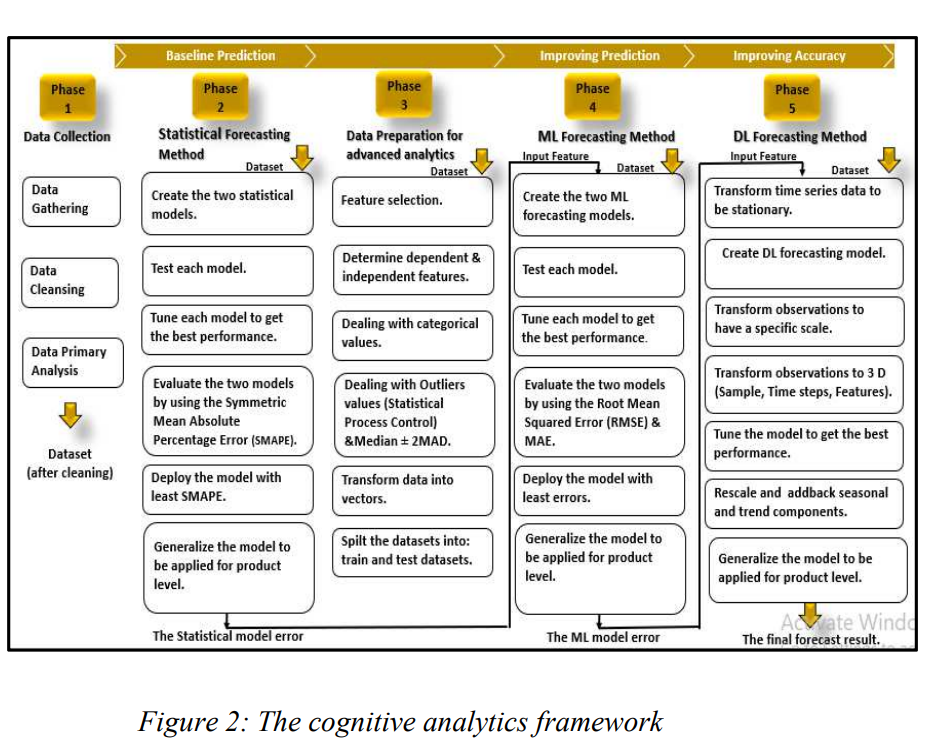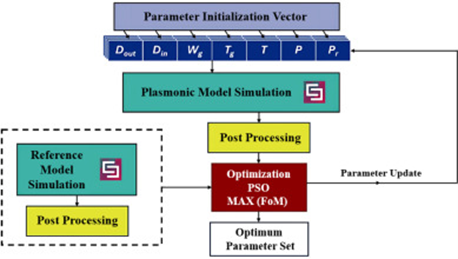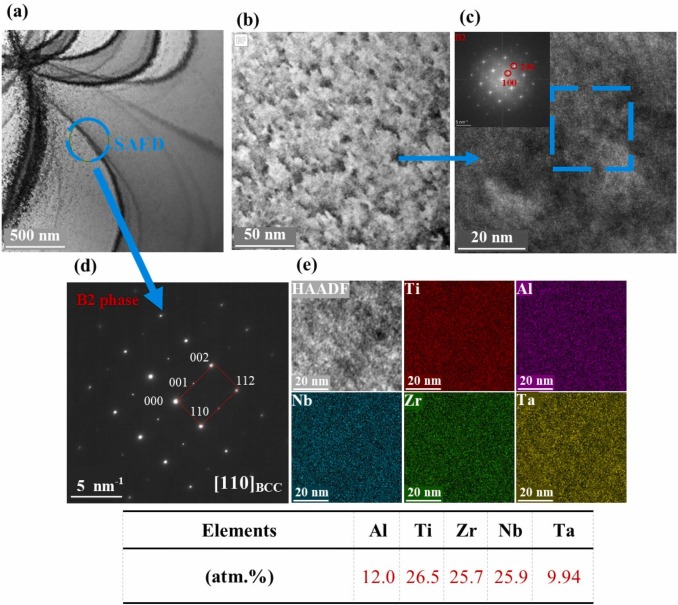

A Cognitive Analytics Framework for Improving Sales Prediction Accuracy
accurate prediction of sales data is an important and challenging problem in the retail industry. However, due to the diversity of data types, it is difficult for traditional time series prediction models to generate good prediction results for different types of data. This research develops a cognitive analytic framework to help transform retailers from the reactive environment to automated continuously learning environment utilizing the power of AI technology in predicting future sales with high accuracy. It proposes a multi-stage prediction framework based on the integration of Statistical Forecasting, Machine Learning Forecasting (ML), and Deep Learning Forecasting (DL) algorithms. The results of the statistical forecasting stage are taken as a baseline to the others consecutive two stages. This approach uses different forecast models based on different forecast mechanisms. It takes the error of each model as an input feature to the following model. The research shows that this process of creating forecasts using a proposed multi-stage framework that combines the error of each forecast stage as an input feature to the next stage produces better accuracy than the output of any single stage alone as well as when not using the error. This research work presents an advanced approach for more accurate prediction of the sales' volume during a defined future period. Accuracy reaches as high as 90% with 82% as an average accuracy. The generalization of the proposed framework outperforms the results in both the category and the product levels of forecasting. This is much preferred in E-commerce platforms where there is a high need to generate product-level operational demand forecasts and when there is no historical data for a long time period to capture the seasonality of a target variable. © 2023 IEEE.



